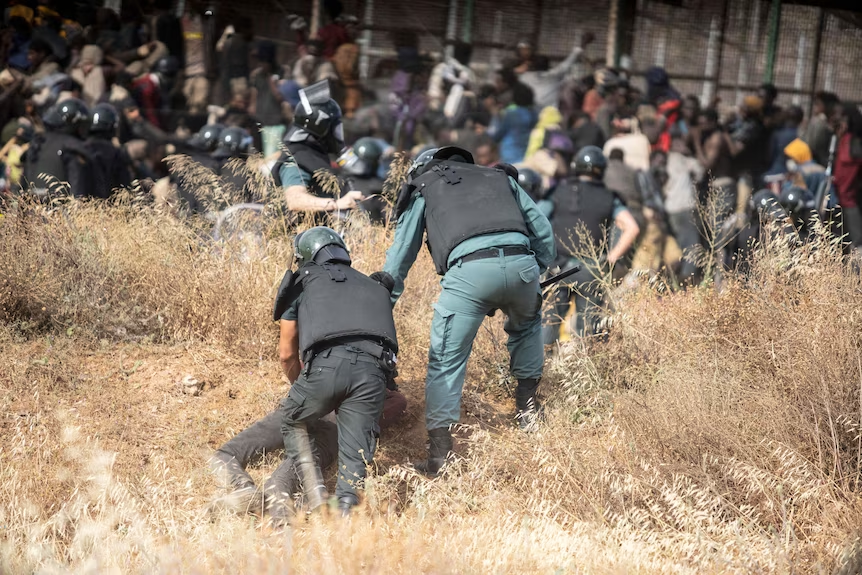
Torre-Pacheco, a small agricultural town in Spain’s Murcia region, has erupted into scenes of xenophobic violence following the assault of a Spanish retiree, an incident widely—but unconfirmedly—attributed to youths of North African descent.
What began as a local criminal investigation quickly spiralled into a coordinated campaign of racial hatred, targeting the town’s Moroccan immigrant population.
On Wednesday, July 9, a 68-year-old man was attacked on the street, prompting a wave of anger. Although no official confirmation has been issued regarding the suspects’ identities, rumours blaming Moroccan youth quickly spread through social media, fuelling public fury.
The unrest intensified over the weekend as far-right groups, some masked and armed with blunt objects, descended on immigrant neighbourhoods. Videos widely shared online show vehicles being vandalised, homes attacked, and hate-filled slogans being chanted. Clashes with police have further escalated tensions.
A call for a “hunt for North Africans” had been circulating via Telegram the day before the attacks, shared across radical nationalist channels.
According to El País, the campaign bore the hallmarks of a well-coordinated digital mobilisation, echoing “the worst methods of the online far right.”
Torre-Pacheco, home to 36,000 people, has a large immigrant population—about 30%—with Moroccan workers forming the backbone of the region’s greenhouse economy.
Yet they have become the scapegoats of broader societal tensions, often associated in the public imagination with crime and drug trafficking.
Despite this, there is no evidence linking the town’s immigrant workers to organised crime. Local officials have condemned the violence.
“The majority of Moroccan immigrants here live from their work and contribute to the local economy. They are full citizens,” said Mayor Pedro Ángel Roca in a statement to La Verdad on July 13.
Murcia regional president Fernando López Miras also condemned the riots and urged the public to “respect the ongoing judicial investigation.”
This week’s events bear an eerie resemblance to the 2000 El Ejido riots in Andalusia, when attacks on Moroccan workers followed a similar spark.
Two decades later, the same fault lines—economic insecurity, ethnic scapegoating, and far-right exploitation—remain painfully present.
Observers warn that without a strong political response and better protections for immigrant communities, the violence seen in Torre-Pacheco could soon spill into other towns across southern Spain.



